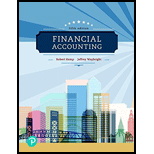Case 2. Kevin Sailors, the CEO of Candle Corporation, was discussing the financial statements with the company accountant. Weak cash flows had resulted in the company borrowing a lot of money. Kevin wanted to know why the money borrowed was included as cash inflows in the financing section of the statement of cash flows but the interest paid on the amounts borrowed was not. The accountant replied that the interest paid on loans was an expense included in the calculation of net income, which was in the operating activities section. Kevin then asked why the dividends Candle Corporation paid to stockholders were included as an outflow of cash in the financing section. The accountant then explained that dividends paid, unlike interest paid, were a return to stockholders and not an expense; therefore, they would not be included in net income, nor would they appear in the operating activities section. Kevin replied that he did not care and instructed the accountant to include both the interest paid and the dividends paid in the financing section. The accountant said that such a move would not be proper. Kevin then said to not provide the statement of cash flows at all because too many people would see the weakening operating cash flows. He further stated that investors and creditors who really analyzed the income statements and balance sheets would be able to understand the company without the need for a statement of cash flows spelling out the net changes in cash flows.
Why would Kevin want the interest paid to be included in the financing activities section? Why would the accountant state that interest paid should not be included in the financing activities section? Can the statement of cash flows be omitted? What ethical issues are involved? Do you have any additional thoughts?


 Auditing: A Risk Based-Approach (MindTap Course L...AccountingISBN:9781337619455Author:Karla M Johnstone, Audrey A. Gramling, Larry E. RittenbergPublisher:Cengage Learning
Auditing: A Risk Based-Approach (MindTap Course L...AccountingISBN:9781337619455Author:Karla M Johnstone, Audrey A. Gramling, Larry E. RittenbergPublisher:Cengage Learning
